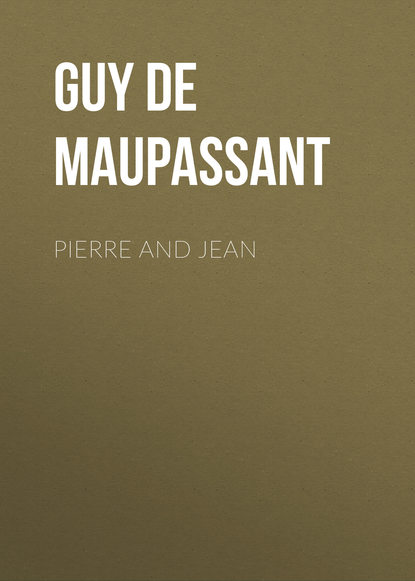По всем вопросам обращайтесь на: info@litportal.ru
(©) 2003-2024.
✖
Pierre and Jean
Настройки чтения
Размер шрифта
Высота строк
Поля
Then, after some hesitation, he asked:
“Is it very hard to get a place as medical man on board a Transatlantic liner?”
“Yes – and no. It all depends on circumstances and recommendation.”
There was a long pause; then the doctor began again.
“Next month, you say, the Lorraine is to sail?”
“Yes. On the 7th.”
And they said nothing more.
Pierre was considering. It certainly would be a way out of many difficulties if he could embark as medical officer on board the steamship. By-and-by he could see; he might perhaps give it up. Meanwhile he would be gaining a living, and asking for nothing from his parents. Only two days since he had been forced to sell his watch, for he would no longer hold out his hand to beg of his mother. So he had no other resource left, no opening to enable him to eat the bread of any house but this which had become uninhabitable, or sleep in any other bed, or under any other roof. He presently said, with some little hesitation:
“If I could, I would very gladly sail in her.”
Jean asked:
“What should hinder you?”
“I know no one in the Transatlantic Shipping Company.”
Roland was astounded.
“And what has become of all your fine schemes for getting on?”
Pierre replied in a low voice:
“There are times when we must bring ourselves to sacrifice everything and renounce our fondest hopes. And after all it is only to make a beginning, a way of saving a few thousand francs to start fair with afterward.”
His father was promptly convinced.
“That is very true. In a couple of years you can put by six or seven thousand francs, and that well laid out, will go a long way. What do you think of the matter, Louise?”
She replied in a voice so low as to be scarcely audible:
“I think Pierre is right.”
Roland exclaimed:
“I will go and talk it over with M. Poulin: I know him very well. He is assessor of the Chamber of Commerce and takes an interest in the affairs of the Company. There is M. Lenient, too, the ship-owner, who is intimate with one of the vice-chairmen.”
Jean asked his brother:
“Would you like me to feel my way with M. Marchand at once?”
“Yes, I should be very glad.”
After thinking a few minutes Pierre added:
“The best thing I can do, perhaps, will be to write to my professors at the college of Medicine, who had a great regard for me. Very inferior men are sometimes shipped on board those vessels. Letters of strong recommendation from such professors as Mas-Roussel, Remusot, Flanche, and Borriquel would do more for me in an hour than all the doubtful introductions in the world. It would be enough if your friend M. Marchand would lay them before the board.”
Jean approved heartily.
“Your idea is really capital.” And he smiled, quite reassured, almost happy, sure of success and incapable of allowing himself to be unhappy for long.
“You will write to-day?” he said.
“Directly. Now; at once. I will go and do so. I do not care for any coffee this morning; I am too nervous.”
He rose and left the room.
Then Jean turned to his mother:
“And you, mother, what are you going to do?”
“Nothing. I do not know.”
“Will you come with me to call on Mme. Rosemilly?”
“Why, yes – yes.”
“You know I must positively go to see her to-day.”
“Yes, yes. To be sure.”
“Why must you positively?” asked Roland, whose habit it was never to understand what was said in his presence.
“Because I promised her I would.”
“Oh, very well. That alters the case.” And he began to fill his pipe, while the mother and son went upstairs to make ready.
When they were in the street Jean said:
“Will you take my arm, mother?”
He was never accustomed to offer it, for they were in the habit of walking side by side. She accepted and leaned on him.
For some time they did not speak; then he said:
“You see that Pierre is quite ready and willing to go away.”
She murmured:
“Poor boy!”
“But why ‘poor boy’? He will not be in the least unhappy on board the Lorraine.”

















